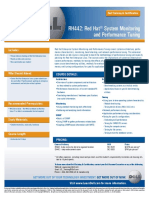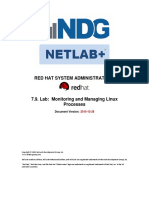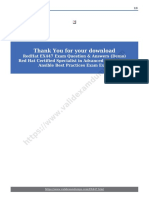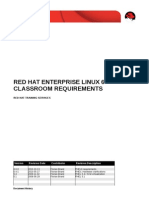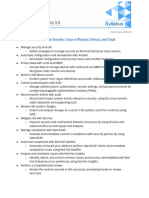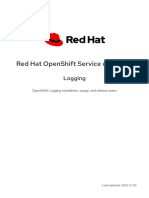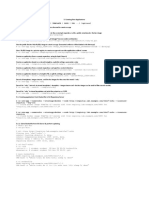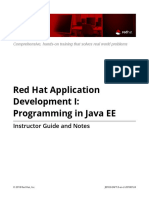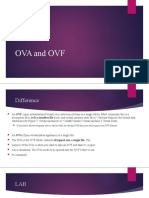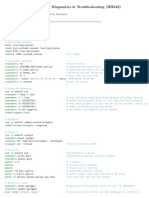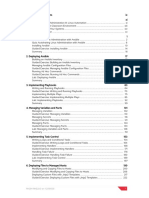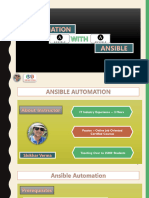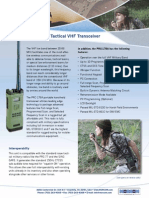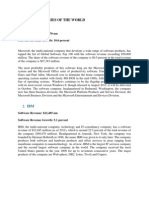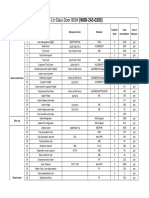0% found this document useful (0 votes)
271 views17 pagesConverting Bash Scripts To Playbooks: Automate All The Things
This document discusses converting Bash scripts to Ansible playbooks for automation. Some key points discussed include examining the script flow and functions to determine how to structure the playbook, converting conditionals and system commands to Ansible tasks, and verifying functionality after each conversion. Converting scripts allows taking advantage of Ansible's idempotent features but may require reworking the script flow and splitting functions across multiple files.
Uploaded by
protosCopyright
© © All Rights Reserved
We take content rights seriously. If you suspect this is your content, claim it here.
Available Formats
Download as PDF, TXT or read online on Scribd
0% found this document useful (0 votes)
271 views17 pagesConverting Bash Scripts To Playbooks: Automate All The Things
This document discusses converting Bash scripts to Ansible playbooks for automation. Some key points discussed include examining the script flow and functions to determine how to structure the playbook, converting conditionals and system commands to Ansible tasks, and verifying functionality after each conversion. Converting scripts allows taking advantage of Ansible's idempotent features but may require reworking the script flow and splitting functions across multiple files.
Uploaded by
protosCopyright
© © All Rights Reserved
We take content rights seriously. If you suspect this is your content, claim it here.
Available Formats
Download as PDF, TXT or read online on Scribd
/ 17

